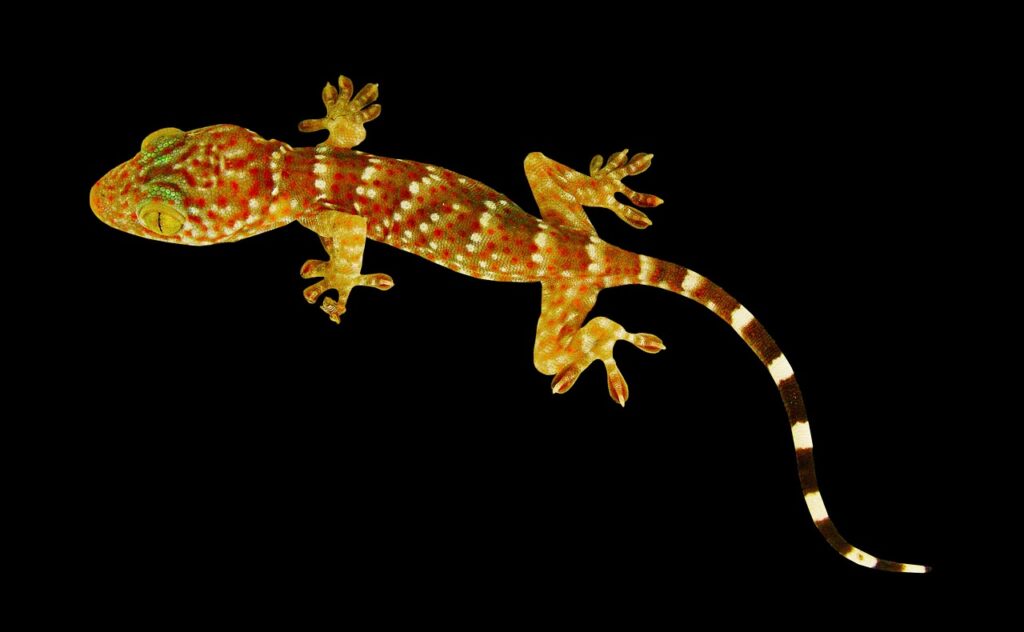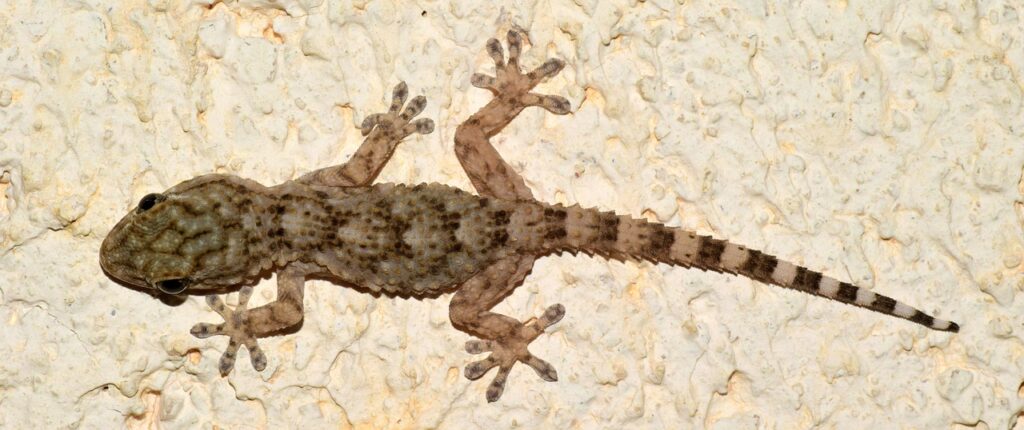
In “Recognizing the Signs of Overfeeding Your Gecko: A Guide to Healthy Feeding,” this informative article explores the potential dangers associated with overfeeding your gecko and offers valuable solutions. It underscores the significance of maintaining a balanced diet for these reptiles to avoid various health issues that can arise from overindulging. By shining a light on the signs of overfeeding and providing practical tips for healthy feeding, this guide equips gecko owners with the essential knowledge they need to ensure the long-lasting well-being of their beloved pets.

Understanding the Basics of Gecko Nutrition
Geckos are fascinating creatures that require proper nutrition to thrive and stay healthy. Understanding their dietary needs is essential for their overall well-being. A well-balanced diet plays a crucial role in ensuring optimal growth, development, and overall health for geckos.
Importance of a Well-Balanced Diet
A well-balanced diet is vital for geckos to meet their nutritional requirements. It provides them with the necessary vitamins, minerals, and other essential nutrients they need to function properly. A balanced diet supports their growth, prevents deficiencies, and ensures their immune system stays strong.
Typical Dietary Needs of a Gecko
Geckos have specific dietary needs, mainly consisting of live insects and occasionally supplemented with fruits and vegetables. The primary source of nutrition for geckos is insects, such as crickets, mealworms, and waxworms. These insects should be appropriately sized for the gecko, to prevent choking or digestive issues.
Additionally, fruits and vegetables can be offered as occasional treats or supplements. However, it is crucial to research specific gecko species as dietary needs may vary. Some geckos, such as the crested gecko, have specific dietary requirements that include fruit-based diets.
Factors Affecting a Gecko’s Nutritional Requirements
Several factors can influence a gecko’s nutritional requirements. These factors include their age, size, species, activity level, and reproductive status. Young geckos have different dietary needs compared to adults, and reproductive females may require additional nutrients.
Observing and understanding these factors will help determine the appropriate diet and feeding habits for your gecko. Consulting a reptile veterinarian or doing thorough research on your gecko’s specific species can provide valuable insights into their nutritional needs.
Identifying Overfeeding in Geckos
While offering a well-balanced diet is crucial, it is equally important to avoid overfeeding your gecko. Overfeeding can lead to various health issues and negatively impact their overall well-being. Therefore, recognizing the signs of overfeeding is essential to maintain a healthy feeding routine.
Defining Overfeeding
Overfeeding refers to providing an excessive amount of food to the gecko, exceeding their dietary requirements. This can occur if the feeding schedule is not appropriately managed or if the portion sizes are too large. Overfeeding often leads to obesity and related health concerns in geckos.
Common Mistakes Leading to Overfeeding
Several common mistakes can lead to overfeeding geckos. One such mistake is offering too many insects or frequent treats, causing the gecko to consume more than necessary. Another mistake is not properly monitoring the gecko’s feeding habits or not adjusting the diet as they grow.
Additionally, inconsistencies in feeding schedules or the lack of portion control can contribute to overfeeding. It is crucial to be aware of these mistakes and take proactive steps to prevent overfeeding from occurring.
How to Monitor your Gecko’s Eating Habits
Monitoring your gecko’s eating habits is essential to ensure they are not being overfed. Keep a record of their feeding schedule, the types and quantities of food offered, and their eating behavior. Regularly observing their eating habits will help identify any changes or potential issues.
You can also seek guidance from a reptile veterinarian on monitoring your gecko’s eating habits effectively. They can provide valuable insights and tips on how to recognize signs of overeating and maintain a healthy feeding routine.
Visible Signs of Overfeeding
Recognizing the visible signs of overfeeding in geckos is crucial for early detection and intervention. Understanding these signs will help you address the issue promptly and prevent further complications.
Physical Changes in the Gecko
One of the visible signs of overfeeding is weight gain or obesity. An overfed gecko may develop a visibly distended abdomen and excess body fat. The gecko’s overall body shape may become rounder or larger than what is considered normal for their species.
Behavioral Changes Linked to Overfeeding
Overfeeding can also manifest in behavioral changes in geckos. They may become lethargic, less active, or show a decreased interest in their usual activities. Overfed geckos may have trouble climbing or moving around as easily as before, as the excess weight can hinder their mobility.
Impact of Overfeeding on Gecko’s Habitat and Activities
Overfeeding can have a significant impact on a gecko’s habitat and activities. An overweight gecko may have difficulty hiding or fitting into their hiding spots. They may also experience difficulty shedding their skin properly, leading to skin issues and complications.
Additionally, an overfed gecko may have reduced energy levels and be less likely to engage in natural behaviors, such as hunting or exploring. This can affect their mental and physical stimulation, leading to boredom and potential health issues.
Health Risks Associated with Overfeeding Geckos
Overfeeding geckos can have serious health risks and consequences. Understanding these risks will emphasize the importance of preventing overfeeding and maintaining a healthy feeding routine.
Obesity and Related Health Concerns
One of the main health risks of overfeeding geckos is obesity. Obesity can lead to a variety of health concerns, including heart disease, liver problems, and skeletal issues. Overweight geckos are also more prone to joint pain and mobility problems.
Vitamin and Mineral Overdose
Overfeeding geckos can result in an overconsumption of vitamins and minerals. Certain vitamins and minerals, such as vitamin D3 and calcium, are crucial for a gecko’s health. However, excessive intake of these nutrients can lead to imbalances or toxicity, causing adverse effects on their overall well-being.
Digestive Problems Due to Overfeeding
Overfeeding can overload the gecko’s digestive system, leading to digestive problems. Digestive issues may include constipation, diarrhea, or gastrointestinal blockages. These problems can cause discomfort, pain, and potentially more severe health complications if left untreated.

Species-Specific Risks of Overfeeding
Different gecko species may have varying nutritional needs and susceptibility to overfeeding-related issues. Understanding these species-specific risks will help tailor their dietary requirements accordingly.
Differences in Nutritional Needs Among Different Gecko Species
Various gecko species have different nutritional needs and preferences. Some species, such as the leopard gecko, have specific dietary requirements that consist mainly of insects. On the other hand, the crested gecko has fruit-based diets supplemented with insects.
It is crucial to research and understand the dietary needs of your specific gecko species to prevent overfeeding or nutritional deficiencies.
Species More Prone to Overfeeding Issues
Certain gecko species are more prone to overfeeding-related issues than others. For example, leopard geckos have a tendency to overeat if given unlimited access to food, leading to obesity. Other species, such as the African fat-tailed gecko, may also be susceptible to overfeeding and weight gain.
Appropriate Portion Sizes for Different Gecko Species
Providing appropriate portion sizes for different gecko species is vital to prevent overfeeding. Understanding the specific dietary needs and feeding habits of your gecko species will help determine the correct portion sizes. Consulting a reptile veterinarian or reputable sources can provide guidance on appropriate portion control.
Preventing Overfeeding
Preventing overfeeding is essential to maintain your gecko’s health and mitigate associated risks. Implementing preventive measures will help establish a healthy feeding routine.
Creating a Feeding Schedule
Establishing a feeding schedule is crucial to prevent overfeeding. Determine the appropriate frequency of feedings based on your gecko’s age, size, and species. Avoid offering unlimited access to food and adhere to a consistent schedule to ensure portion control.
Choosing the Right Food
Selecting the right food is key to maintaining a balanced diet for your gecko. Research the specific dietary requirements of your gecko species and offer a variety of appropriately sized live insects. Supplementing with occasional fruits and vegetables can provide additional nutrients but should be done in moderation.
Importance of Portion Control
Portion control is critical to prevent overfeeding. Offer an appropriate number of insects that satisfy your gecko’s dietary requirements without excess. Avoid leaving uneaten insects in their enclosure for extended periods to prevent overconsumption or contamination.

Effective Ways to Correct Overfeeding
If you suspect that you have been overfeeding your gecko, it is essential to take corrective measures to improve their health and well-being.
Adjusting Diet and Feeding Habits
To correct overfeeding, adjust your gecko’s diet and feeding habits accordingly. Reduce the amount of food offered and stick to a regular feeding schedule. Focus on providing a well-balanced diet based on their species-specific nutritional needs.
Encouraging Physical Activity
Encourage physical activity to help your gecko burn excess calories and maintain a healthy weight. Offer opportunities for climbing, exploring, and providing appropriate hiding spots. Implementing environmental enrichment can stimulate their natural behaviors and promote exercise.
Monitoring Weight and Health
Regularly monitor your gecko’s weight and overall health to ensure progress in addressing overfeeding issues. Tracking weight and observing their activity levels, appetite, and overall behavior will provide valuable insights into their progress. If concerns persist, consult a reptile veterinarian for further guidance.
Consulting a Reptile Veterinarian
In case of persistent concerns or severe overfeeding-related issues, it is essential to consult a reptile veterinarian. They can provide professional guidance and advice specific to your gecko’s individual needs.
When to Consult a Vet
If you are unsure about your gecko’s dietary needs, feeding habits, or the severity of the overfeeding issue, it is best to consult a reptile veterinarian. They can assess the situation, provide accurate diagnoses, and recommend appropriate treatments or modifications to ensure your gecko’s well-being.
Possible Treatments for Overfed Geckos
Reptile veterinarians may provide various treatments or interventions for overfed geckos, depending on the severity of the issue. These treatments may include dietary modifications, supplemental vitamins or minerals, and monitoring their health closely.
Long-Term Support for Diet Modification
Receiving long-term support from a reptile veterinarian is crucial when addressing overfeeding and implementing diet modifications. Regular check-ups and ongoing communication with the veterinarian will help ensure your gecko’s nutritional needs are met and any potential issues are addressed promptly.
Role of Hydration in a Gecko’s Diet
While nutrition is vital, hydration also plays a significant role in a gecko’s overall health. Understanding the importance of hydration and its connection to overfeeding is essential for maintaining a healthy gecko.
Significance of Proper Hydration
Proper hydration is crucial for a gecko’s physiological functions, digestion, and overall well-being. Providing adequate water sources is essential to prevent dehydration, especially if their diet consists of dry, nutrient-dense foods like insects.
Connection Between Overfeeding and Dehydration
Overfeeding geckos can inadvertently lead to dehydration. Certain foods, such as dry insects or fruit-based diets, may require additional hydration to compensate for the lack of moisture in their diet. It is essential to provide ample water sources and ensure your gecko drinks enough to stay hydrated.
Providing the Right Amount of Water for Geckos
Offering a clean water dish should be a regular part of your gecko’s habitat. Ensure the water is fresh and readily accessible. Mist their enclosure regularly to increase humidity levels and provide moisture for your gecko to drink.
Key Takeaways – Healthy Feeding of Geckos
Understanding the key takeaways regarding gecko nutrition is critical for maintaining their health and well-being.
Salient Points Regarding Gecko Nutrition
Geckos require a well-balanced diet consisting mainly of live insects, supplemented with occasional fruits and vegetables. There are species-specific differences in nutritional needs, so research your gecko’s specific dietary requirements. Establishing a feeding schedule, practicing portion control, and choosing the right food are vital aspects of gecko nutrition.
Importance of Vigilance in Monitoring Gecko’s Food Intake
Regularly monitoring your gecko’s food intake, weight, and behavior is crucial for preventing overfeeding. Being vigilant allows timely intervention if any signs of overfeeding or health issues arise.
Action Steps for Ensuring Healthy Feeding Practices
To ensure healthy feeding practices, create a feeding schedule, offer appropriate portion sizes, and choose a well-balanced diet. Encourage physical activity, monitor your gecko’s weight and health, and consult a reptile veterinarian for professional guidance when needed. Maintain proper hydration by providing clean water and additional moisture sources.
By following these guidelines, you can ensure the optimal health and well-being of your gecko through a balanced and appropriate feeding routine.
